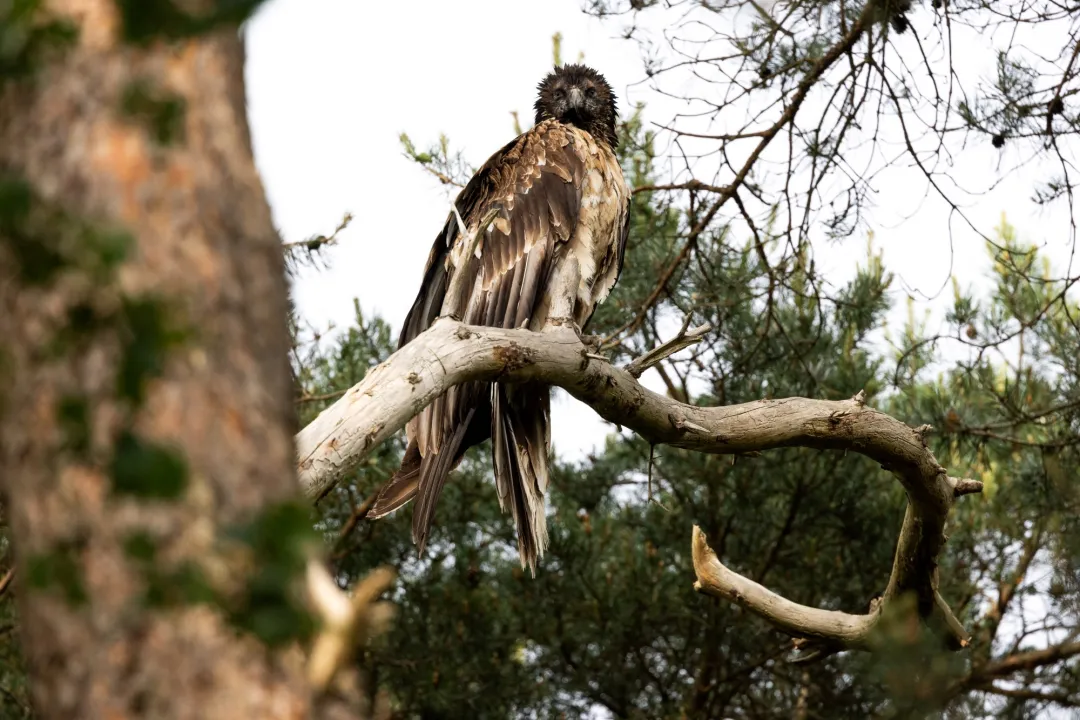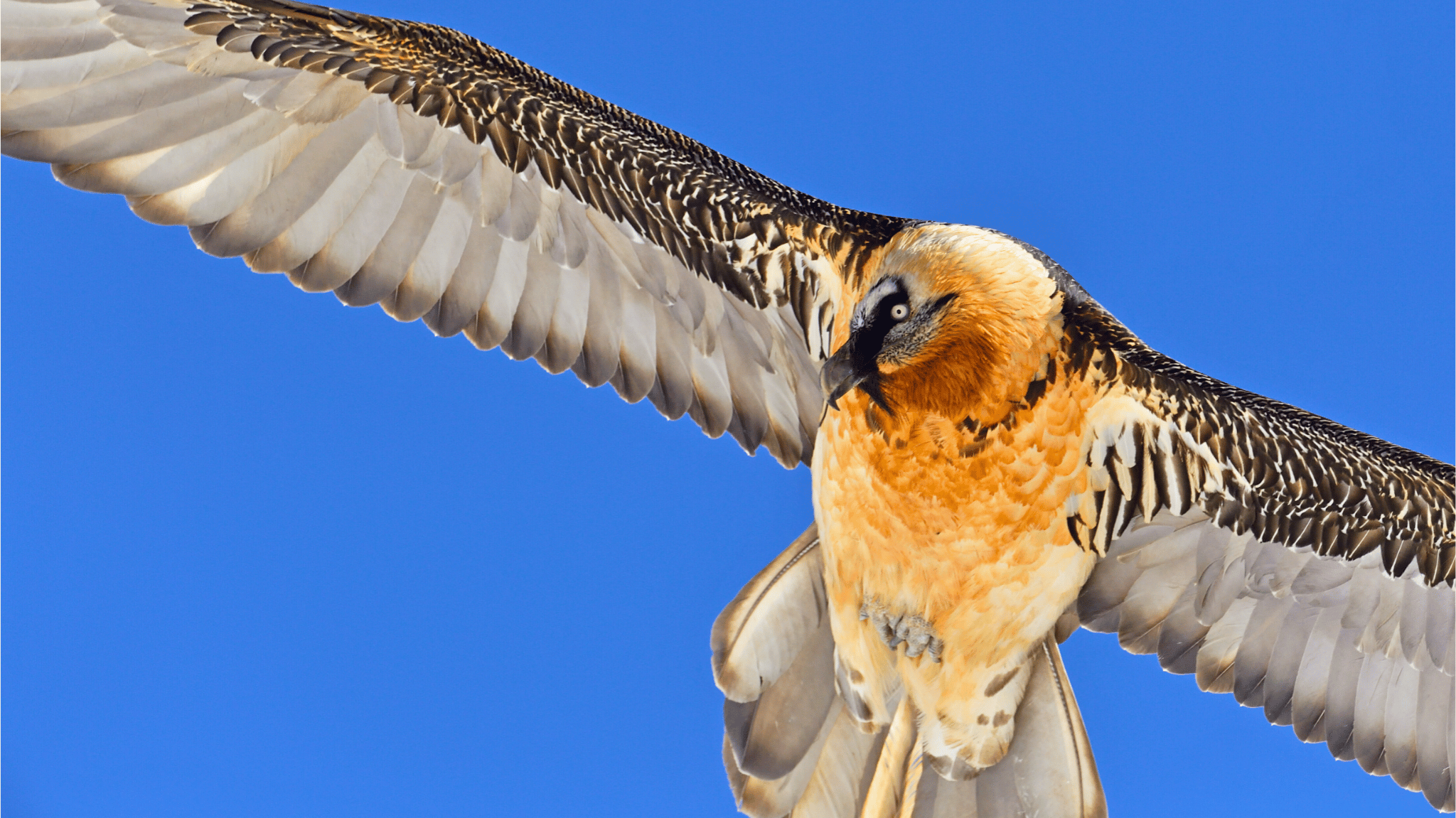
We regret to inform you that on Saturday 20 July, the young Bearded Vulture Monna fell to her death from a cliff. The LIFE GypConnect team reintroduced Monna to the wild this May alongside two other young Bearded Vultures.
Releasing Monna
Monna launched this year’s Bearded Vulture Release Season alongside Europe and Lausa. LIFE GypConnect released Europe, Lausa and Monna at the age of 97, 91 and 87 days respectively on 6 May 2019 at the Parc naturel régional des Grands Causses. The so-called hacking technique that has been successfully implemented for decades was used. The technique involves placing a Bearded Vulture chick in an artificial nest in a wild site, where the chick is fed and monitored without human contact until the young bird has fledged and leaves the release site.
Once the aviary opened, Europe was the first to take flight, with Lausa and Monna shortly following. Monna was hesitant in her flights and never travelled far. Nevertheless, her flight technique and control was gradually improving.
Deadly fall
It was the third time our LIFE GypConnect team observed Monna fall. During the two previous falls, on 29 June and 10 July, the behaviour of the bird worried the team. But she took off immediately, and the monitoring team did not manage to capture the bird to examine her and detect what was wrong.
After the falls, she had shown some signs of loss of balance but had also quickly given reassuring signs of her state of health, quickly recovering and flying again.
We retrieved her body and are currently waiting for the autopsy results.
Updates from the other three vultures released at the Grand Causses

Lausa is still territorial and fiercely defends her perimeter of food against potential intruders.
Cévennes persists with his flying prowess, always performing great loops.
Europe is becoming more and more adventurous, exploring the vast world. He ventured far north to Aveyron (the Larzac plateau and the Mende area), thus moving farther and farther.
Adonis, Layrou and Arcana still regularly visit the site. Arcana has a habit of stealing a few pieces of food from the younger ones.
Four vulture observers have now completed their mission. The LIFE GypConnect teams thanks them warmly for their involvement and their commitment. We continue monitoring the vultures with a smaller but very dedicated team.
LIFE GYPCONNECT

Led by the League pour la Protection des Oiseaux (LPO), the LIFE GYPCONNECT project aims to establish a breeding population of Bearded Vultures in the Massif Central and Department of the Drôme. Releasing captive-bred Bearded Vultures into the wild at sites such as the Parc Naturel Régional des Grands Causses, Parc Naturel Régional des Baronnies Provençales and Parc Naturel Régional du Vercors will create a core population that will connect the two populations of the species in the Alps and Pyrenees. To facilitate movements between the new population and the Alpine and Pyrenean populations the LIFE GYPCONNECT team is creating a network of supplementary feeding stations, and tackling threats such as poisoning, and collision and electrocution with the electricity infrastructure.






